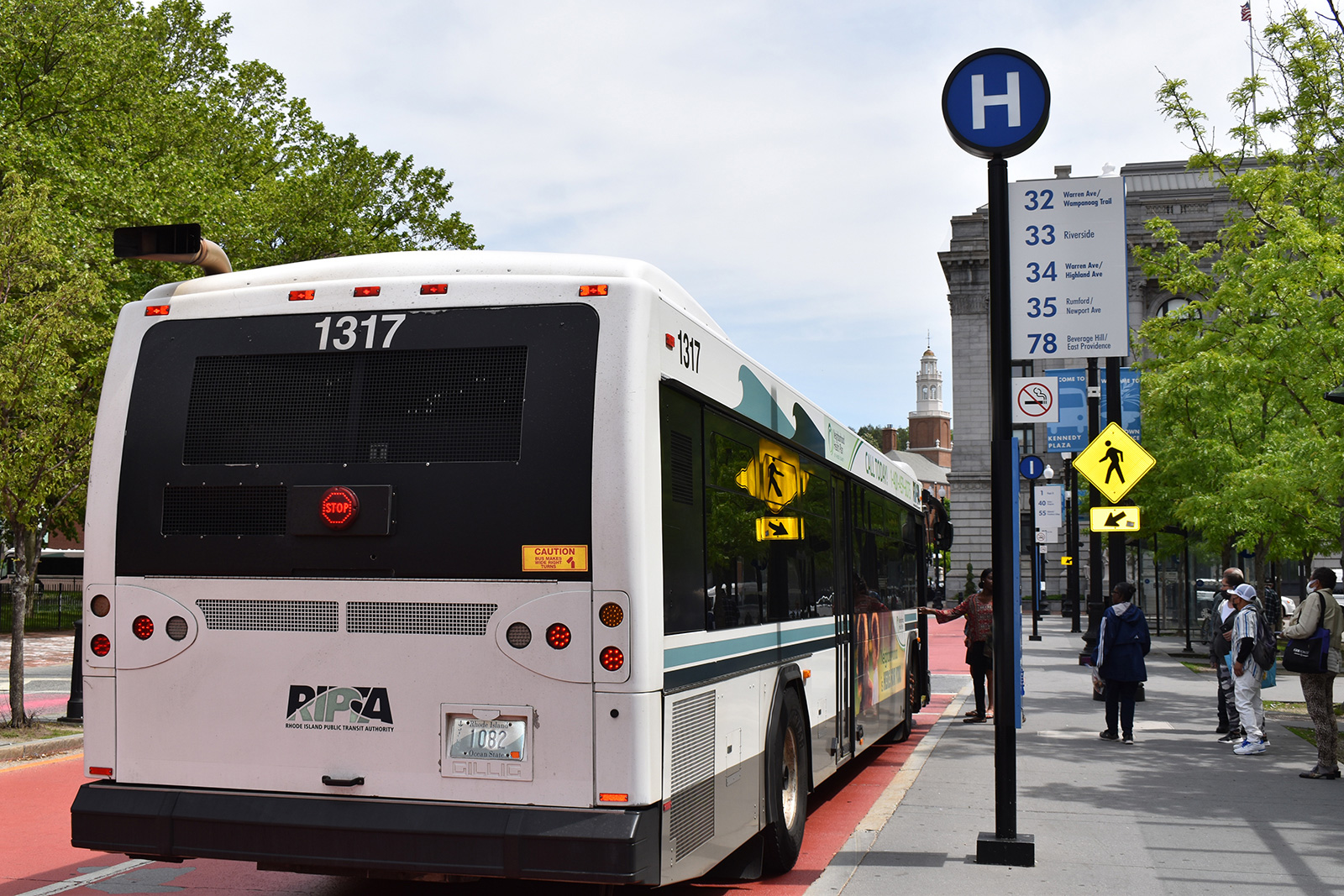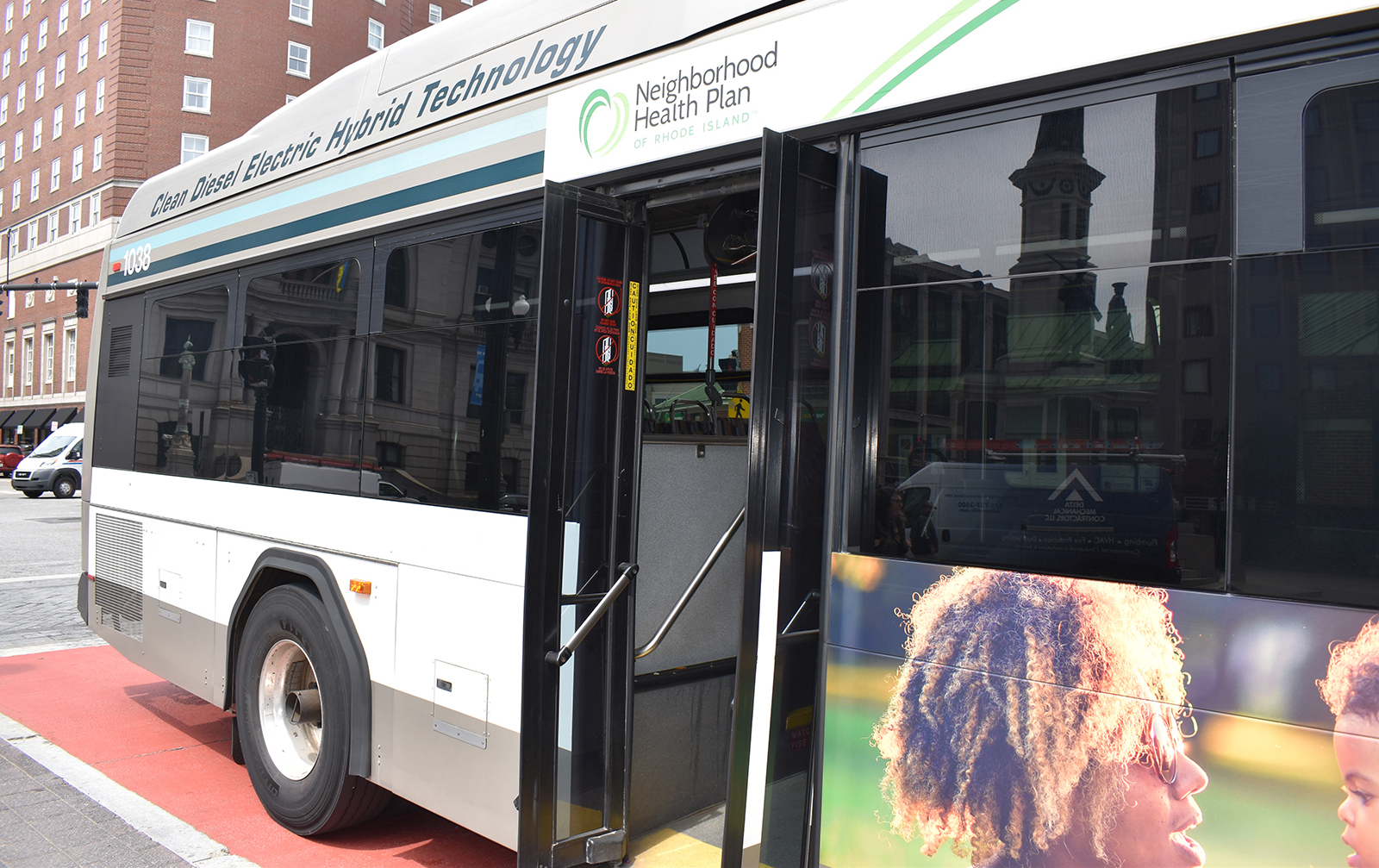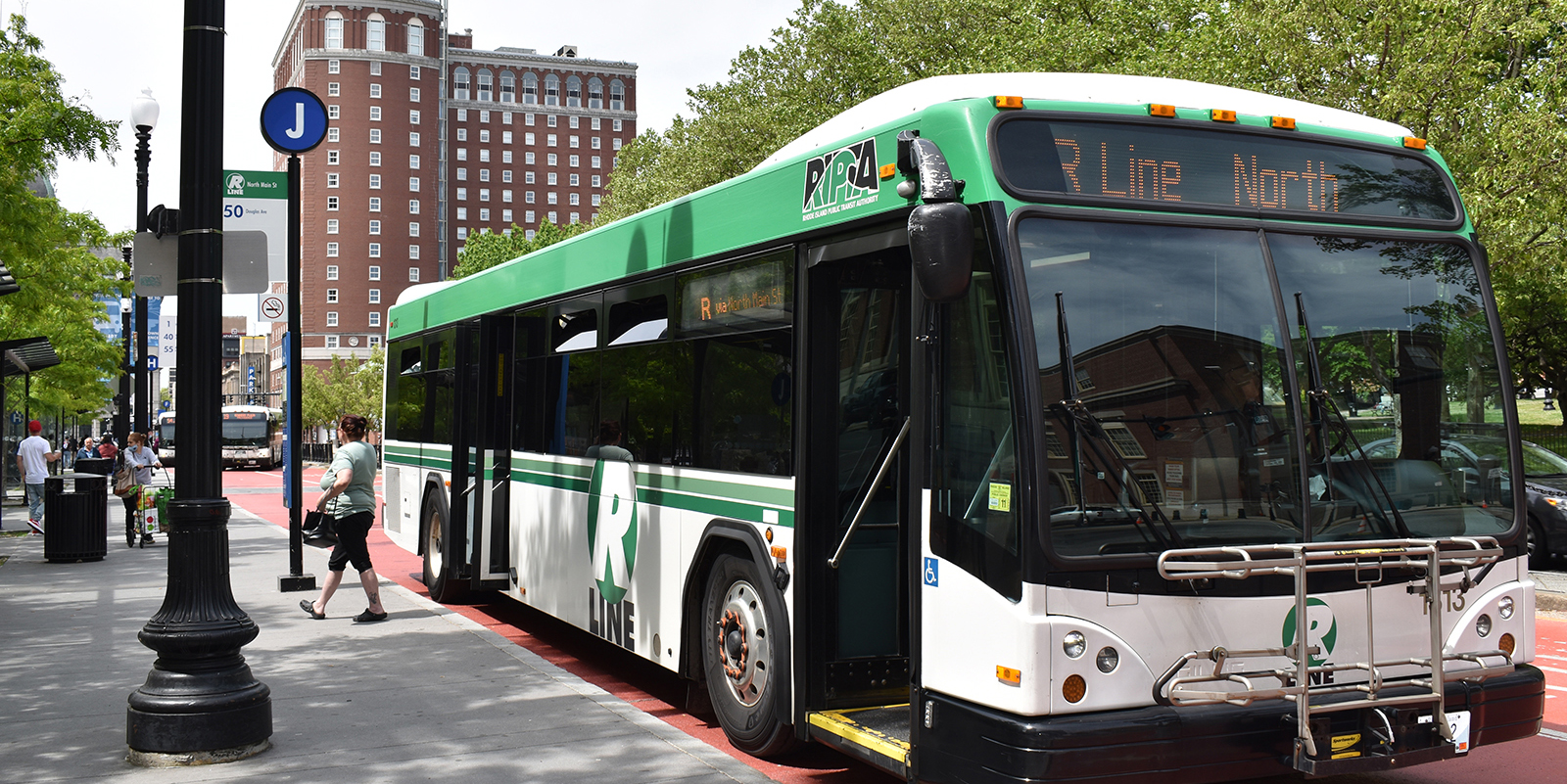‘Unimportant, Unseen, Overlooked’: Transit Riders and Advocates Disappointed by McKee’s RIPTA Budget Proposal
January 22, 2024
Following the McKee administration’s unveiling of its fiscal 2025 budget proposal, transit advocates voiced concerns over the money allocated to the Rhode Island Public Transit Authority, or, in their opinion, the lack of it.
The governor’s proposed budget would give RIPTA $10 million in federal funding to help cover its deficit, short of the $18 million the agency estimated it needed to fill in the gap.
A coalition of advocates, including union representatives, transit riders, and local nonprofits, had been calling on the state to “fully fund” the agency. That amounted to a $110 million ask, not only to avoid the fiscal cliff, but to also ensure fair wages and training for drivers and the implementation of the state’s Transit Master Plan (TMP).
Amy Glidden, co-coordinator of the advocacy group Rhode Island Transit Riders, was disappointed that Gov. Dan McKee didn’t address the fiscal cliff — the point when the state runs out of federal COVID relief funds used to prop up RIPTA — completely in his budget proposal.
Glidden, a transit rider and Providence public school teacher, said she is worried about how RIPTA’s further belt tightening may affect service, including special bus routes for high school students, something she said is often the first to get cut although it can greatly impact school attendance.
It’s not clear if or how RIPTA would modify service to make up for the funding gap.
In a statement to ecoRI News, RIPTA CEO Scott Avedisian said the agency “will review the budget proposal and analyze its impact on our operations accordingly.”
RIPTA’s financial team had already trimmed some internal spending to reduce what had been calculated as a $40 million deficit down to about $18 million.
Those cost savings reduced the number of slashed driver slots from 40 currently unfilled positions to 36 by taking from other parts of the authority’s budget, including cutting some subscriptions and inefficiencies in training and maintenance, as well as freezing travel, RIPTA CFO Chris Durand said at an authority board meeting at the end of November.
ecoRI News previously reported that state officials said RIPTA would need to complete an “efficiency review,” using some of the allocated $10 million to help the agency come up with the deficit difference.
“Efficiency is just another word for service reductions,” said Glidden, commending RIPTA for already operating efficiently as “one of the most overly scrutinized agencies” in the state.
Glidden noted RIPTA’s financial woes aren’t unique to the agency. It is one of many transit authorities across the country facing a fiscal cliff caused in part by lower pandemic and post-pandemic ridership and the exhaustion of federal COVID funding that helped cover operational costs.
Cutting service would only make RIPTA’s problems more difficult down the line, she said. “We could enter a ‘transit death spiral,’ whereas service gets cut to the point where people are no longer riding and it becomes unsustainable.”
Traci Picard, a Providence resident and longtime RIPTA rider, said she is concerned that the lack of funding would make riding RIPTA more difficult than it already is.
“I don’t feel surprised,” she said of the budget proposal. “I feel unimportant, unseen, overlooked. I feel frustrated.”
Picard takes public transit daily, often to work and to social events, and already experiences the difficulties of limited hours and routes.
For example, although she has no trouble using RIPTA to get to doctor’s appointments, on the way home, she would need to cross a highway to get to a bus stop.
“The biggest concern is that those who need it, very much need it and rely on it, won’t have it,” she said. “And those who we want to bring into the transit team … the gospel of transit, good luck converting interested parties, if it doesn’t work, if it’s not running, if it’s not showing up.”
The governor’s office could not be reached for comment.
Despite the concerns about the current budget proposal, it has not yet been approved by the General Assembly and is subject to change.
“We look forward to working with the Governor and Legislature to close the budget deficiencies that we have,” Avedisian wrote in the statement.
Patrick Crowley, RIPTA board member and secretary-treasurer of the Rhode Island AFL-CIO, called the governor’s budget proposal “a good start.”
The agency needs to continue to show that it can root out inefficiencies, Crowley said, “so that maybe, we can meet the governor and the General Assembly halfway.”
But he said those additional budget adjustments should not include getting rid of routes or drivers.
“We can’t cut any jobs or any service to the public as a way to close this gap,” he told ecoRI News.
Crowley said he was not sure yet if the $10 million allocated should be higher, he but said the fact that it was offered is “a very positive indication that the governor has recognized that RIPTA needs additional resources.”




McKee has regularly shown that he is unable to grasp the economy of the future, and continues to offer a budget based on the past rather than adapting to climate realities. One of these days he will figure out that the only future path to prosperity in RI is to make climate justice the core principle of economic development. McKee’s budget does not show that he has grasped that yet but it still trying to create the neoliberal fantasy of rule of by and for the rich. Prosperity is everyone housed and fed, not everyone going broke trying to pay for health care.
As a relative newcomer (by choice) to RI (5 years), I have begun to think that the overall philosophy is “run it into the ground and get rid of it.” Decaying and abandoned public buildings left until “it’s too expensive” either to renovate or to remove them (I guess it’s cheaper to wait until a piece falls off and kills someone); public parks abandoned until no one uses them and then “because they are not used anymore” they are sold for private development; a public transportation system slowly chipped away until it’s so inconvenient that it’s abandoned, and then it can be cut; funds to develop Kennedy Plaza frittered away with one ridiculous proposal after another and still no solutions.
What a pity. Such a nice state–or it could be!
The agency needs to continue to show that it can root out inefficiencies, Crowley said, “so that maybe, we can meet the governor and the General Assembly halfway.”
But he said those additional budget adjustments should not include getting rid of routes or drivers.
“We can’t cut any jobs or any service to the public as a way to close this gap,” he told ecoRI News.
But, isn’t this exactly what they ARE doing? Eliminating bus routes for anyone who is not living in the big cities. People that have to ride the bus to get to their jobs in the city are out of luck. They are possibly also getting rid of drivers. Their newsletter says they don’t have enough drivers, but the pamphlets posted at the CCRI hub says they are laying off drivers. Which is it?